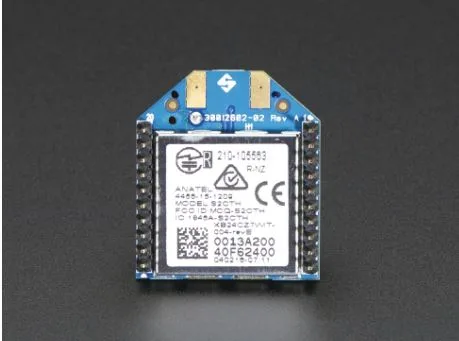Why Zigbee Module Is a Smart Choice for Home Automation and Industrial Control Systems?
The Zigbee Module has emerged as a key enabler in both home automation and industrial control systems. Its ability to connect a wide range of devices through a robust wireless mesh network makes it a top choice for smart environments. With the growing demand for intelligent systems, this technology plays a central role in modern automation.
By leveraging low-power communication and strong interoperability, the
Strong Mesh Networking for Reliable Connections
One of the standout features of the Zigbee Module is its robust mesh networking capability. Unlike point-to-point systems, mesh networks allow each device to act as a relay, extending coverage throughout the environment. This setup ensures consistent communication, even in large or complex spaces.
Additionally, the self-healing nature of the mesh network strengthens reliability. If one device fails or disconnects, the system automatically reroutes signals through alternate paths. This resilience is especially valuable in industrial sites and smart homes, where uninterrupted operation is essential for safety and convenience.
Low Power Consumption Supporting Long-Term Operations
Energy efficiency is crucial in automation systems. The Zigbee Module excels in minimizing power usage, allowing devices to operate for extended periods on small batteries. This characteristic is essential for sensors and actuators that are hard to access regularly.
Moreover, Zigbee technology includes sleep modes and efficient communication protocols that further reduce energy consumption. These features enable designers to create sustainable, low-maintenance systems. Whether in home lighting or industrial monitoring, devices with Zigbee Modules deliver long-lasting, reliable performance with minimal power demands.
High Scalability for Expanding Automation Networks
Scalability is another key advantage of the Zigbee Modules. It supports large networks, accommodating hundreds of devices within a single system. This flexibility allows users to start small and expand their networks as needed, without requiring major reconfigurations.
In residential applications, homeowners can gradually add devices like smart locks, thermostats, or security systems. In industrial environments, facilities can scale up their automation networks to include more sensors, controllers, and machinery. With Zigbee Modules, both sectors enjoy smooth and cost-effective expansion options that evolve in tandem with operational needs.
Enhanced Interoperability Across Brands and Platforms
The Zigbee Module is known for its high interoperability. It works seamlessly with devices from various manufacturers, thanks to standardized communication protocols. This compatibility simplifies integration efforts and ensures users are not locked into a single vendor’s ecosystem.
Additionally, the growing adoption of Zigbee standards across industries further supports this interoperability. Users can confidently mix and match devices for different purposes, whether they are automating home lighting or managing industrial operations. The result is a flexible, future-ready network that adapts easily to changing requirements and technological advancements.
Reliable Security Measures Protecting Networks and Data
Security is a critical aspect of any connected system. The Zigbee Module incorporates advanced security features to safeguard both networks and user data. It utilizes AES-128 encryption to protect communications, ensuring that only authorized devices can access the network.
Beyond encryption, Zigbee also includes authentication protocols that prevent unauthorized access. These protections are crucial in industrial settings, where compromised systems can pose significant safety risks. Likewise, in smart homes, they deter hackers from gaining control over critical devices. The Zigbee Module delivers peace of mind through robust, built-in security.
Cost-Effective Solutions for Broad Market Accessibility
Affordability is one of the primary reasons why the Zigbee Module appeals to both homeowners and industrial users. Its components are relatively inexpensive, making it easier to deploy large networks without excessive costs. Additionally, the use of unlicensed radio frequencies reduces operational costs.
Furthermore, Zigbee-based devices generally require minimal maintenance, which keeps long-term costs low. Their energy efficiency, combined with reliable performance, reduces the need for frequent replacements or service interventions. This combination of low upfront and ongoing expenses makes the Zigbee Module an attractive solution for many automation projects.
Versatility Across Diverse Home and Industrial Applications
Few technologies match the versatility of the Zigbee Module. In homes, it powers bright lighting, climate control, security systems, and more. Users can automate daily routines, optimize energy usage, and enhance comfort with ease.
In industrial settings, the Zigbee Module enables advanced process control, equipment monitoring, and predictive maintenance. It also supports remote management, allowing operators to track systems from off-site locations. This flexibility makes Zigbee technology a trusted solution for enhancing both convenience and operational efficiency across a wide range of industries.
Why Zigbee Module Stands Out in Automation Solutions
By providing strong security, low costs, and broad versatility, the Zigbee Module helps users maximize value while future-proofing their systems. As automation becomes increasingly essential in homes and industries, this technology will continue to drive innovation and simplify operations worldwide. Choosing Zigbee Module solutions ensures users gain the benefits of a robust, scalable, and efficient wireless communication platform.






